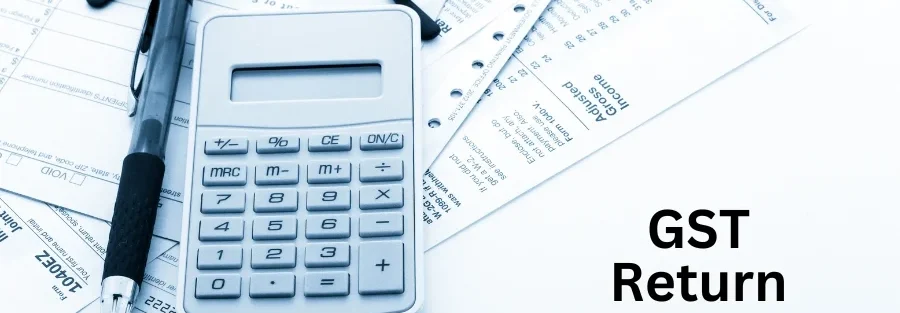For businesses registered under the Goods and Services Tax (GST) system, Partnering with a trusted accounting service provider like Corporate Genie can be a game-changer for your business for filing GST returns within the specified deadlines is of utmost importance. The GST return date refers to the deadline by which businesses must submit their GST return forms containing details of their sales, purchases, and tax liabilities. However, circumstances may arise where businesses miss the GST return deadline.
Understanding the GST Return Due Dates
Under the GST regime, businesses are required to file various types of GST returns, such as GSTR-1, GSTR-3B, GSTR-5, GSTR-6, GSTR-7, GSTR-9 and many more depending on their turnover and nature of operations. Each return has its own due date, which is determined by the GST Council and is subject to periodic revisions.
Implications of Missing the GST Return Date
Late Fees and Penalties: One of the first consequences of missing the GST return date is the imposition of late fees and penalties. The late fee for delayed filing of GSTR-1 and GSTR-3B is typically Rs. 50 per day of delay (Rs. 20 per day of delay in case of NIL Return), subject to a maximum cap. Additionally, businesses may face penalties for non-compliance, which can range from a percentage of the tax amount to a fixed sum.
Interest on Late Payments: Delayed filing of GST returns often leads to delayed payment of taxes. In such cases, businesses may be liable to pay interest on the outstanding tax amount. The interest rate is calculated on a monthly basis and is typically higher than the prevailing bank interest rates.
Loss of Input Tax Credit: Timely filing of GST returns is crucial for businesses to claim input tax credit (ITC) on their purchases. If returns are not filed within the due date, businesses may lose the opportunity to avail themselves of ITC, resulting in increased costs and reduced profitability.
Compliance Scrutiny and Audits: Non-compliance with GST return filing deadlines may draw the attention of tax authorities, who may subject the business to scrutiny or audits. This can be time-consuming, disruptive, and may result in additional penalties if irregularities or discrepancies are found.
Business Disruption and Reputational Damage: Consistently missing the GST return can lead to a negative reputation for the business. It may raise concerns among suppliers, customers, and potential partners, affecting business relationships and growth opportunities. Furthermore, non-compliance issues can result in disruptions in obtaining necessary licenses, bank loans, or participating in government tenders.
Steps to Mitigate the Consequences of Missing the GST Return Date

Timely Communication: In case of a genuine reason for missing the GST return date, it is advisable to communicate with the tax authorities and provide a valid explanation. In certain situations, authorities may consider granting an extension or waiving penalties, although this is at their discretion.
Prompt Filing: If you have missed the GST return, it is crucial to file the return as soon as possible. By doing so, you can minimize additional penalties and reduce the interest on late payments.
Professional Assistance: Seeking professional guidance from tax consultants or chartered accountants can help ensure timely and accurate filing of GST returns. Professionals can provide insights, help manage compliance, and mitigate the risk of missing deadlines.
Systematic Record-Keeping: Maintaining proper records of sales, purchases, and tax payments throughout the year can significantly streamline the GST return filing process. With organized documentation, businesses can avoid errors, reduce processing time, and meet deadlines more efficiently.
Conclusion
Meeting the GST return date is crucial for businesses to maintain compliance with the GST regime and avoid potential penalties and consequences. However, if a business does miss the GST return date, it is essential to take immediate action, file the return as soon as possible, and communicate with the tax authorities if necessary. By prioritizing timely GST return filing and adopting sound record-keeping practices, businesses can ensure smooth operations, maintain their reputation, and minimize the financial impact of non-compliance. Remember, the information provided in this blog post is for general guidance only and may vary depending on the specific GST laws and regulations applicable in your jurisdiction. It is always advisable to consult with a tax professional or refer to the official GST guidelines for accurate and up-to-date information.
Frequently Asked Questions (FAQ’s )
Q1: What is the GST return date?
The GST return date refers to the deadline by which businesses registered under the Goods and Services Tax (GST) system must file their GST returns. The specific return dates vary depending on the type of return and are determined by the GST Council.
Q2: What happens if I miss the GST return date?
Missing the GST return date can have several consequences. These may include the imposition of late fees and penalties, the payment of interest on late payments, the loss of input tax credit, scrutiny or audits by tax authorities, and potential disruptions to business operations and reputation.
Q3: Can I request an extension if I am unable to meet the GST return date?
While it is advisable to file returns within the specified deadline, there may be certain situations where businesses have genuine reasons for missing the GST return date. In such cases, it is possible to communicate with the tax authorities and provide a valid explanation. The authorities may consider granting an extension or waiving penalties, although this is at their discretion.
Q4: How can I minimize the consequences of missing the GST return date?
To mitigate the consequences, it is essential to file the return as soon as possible after missing the deadline. By doing so, businesses can minimize additional penalties and reduce the interest on late payments. Seeking professional assistance from tax consultants or chartered accountants, maintaining systematic record-keeping practices, and ensuring timely communication with the tax authorities can also help minimize the impact of missing the GST return date.


 India
India  Canada
Canada

